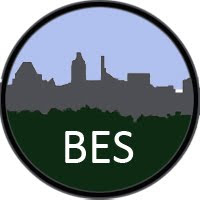Yes, But What Theory Are You Testing?
Urban ecology talks and papers often begin with statements like these:
- More than half the world’s human population now lives in cities.
- Urban areas in the United States cover 3% of the country’s area.
- Cities are harbingers of global warming, and already represent the drier and warmer conditions many habitats will increasingly experience.
Like other scientific research areas of immense practical value, the justification for urban ecological studies often ends with that: It’s important for solving problems! It matters to people because that’s where most of them live! Those rationales are reasonable and true.
But they are not enough. Urban ecological science, like any science must also have its theoretical foundation. Every cutting edge science must do one of three things:
- Discover new phenomena or a new way to relate phenomena in the material world.
- Build a new theory, or expand and clarify an existing theory.
- Test some existing or emerging theory.
Unless it does one or more of these things, science is a dry and uninteresting — if sometimes practically important — pursuit. Turning the bright light of theory on urban ecological science reveals a discipline that too often gets by on importance rather than scientific significance.
Undoubtedly, more data at a variety of scales are needed in urban ecology. And better comparisons among urban areas across a variety of geographies, cultures, climates, and histories are needed. Furthermore, better integration of biological, social, and physical data and approaches are needed. And so too are better connections of the substance of the science with practical professions, each with its own theories and modes of application. Data that answer questions posed by citizens, policy makers, decision leaders, and advocacy groups are in great demand as well. This is appropriate.
But without strengthening our theory, the discipline will languish in a conceptual backwater, responding to headlines that identify the important but ad hoc needs and interests of other people.
So I return to my opening question, directed at ecological scientists of cities-suburban-exurban systems: How are you advancing the theory of the discipline? How do your observations and experiments improve our understanding of cities as scientific phenomena? What theory are you helping to build? How do your models advance the concepts, generalizations, or mechanisms that the theory requires? How does your work test the larger theory, or test some specific models or hypotheses that the theory has suggested? In other words, the question to consider here is not about the social importance of urban ecology, but about its contributions to the larger program of advancing scientific understanding.
Coda.
Importance is a legitimate guide for science. But societal importance can’t be the only reason for doing science. Advancing the integrity, soundness, and scope of the science itself are additional goals that every researcher needs to consider.
I want to emphasize that I am not saying to abandon societally important urban research. Far from it. But I believe it is very healthy for the science, which is the larger structure that supports “important” research after all, itself is sometimes the focus for improvement. Asking “What theory are you testing?” keeps that focus in mind.


